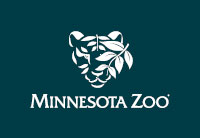 Greetings from “World’s End”, the field camp where I make my home in rugged northwestern Namibia! I first arrived in Namibia in 2002, and have been working here as a conservation biologist for the Minnesota Zoo since 2009. In partnership with Namibia’s Save the Rhino Trust, the Minnesota Zoo is helping protect and save critically endangered black rhinos. This species is facing a poaching crisis, and we need your help! Starting January 1st, we invite you to support this important work when you buy a Zoo ticket or show your membership card at the Zoo’s entrance.
Greetings from “World’s End”, the field camp where I make my home in rugged northwestern Namibia! I first arrived in Namibia in 2002, and have been working here as a conservation biologist for the Minnesota Zoo since 2009. In partnership with Namibia’s Save the Rhino Trust, the Minnesota Zoo is helping protect and save critically endangered black rhinos. This species is facing a poaching crisis, and we need your help! Starting January 1st, we invite you to support this important work when you buy a Zoo ticket or show your membership card at the Zoo’s entrance.
When I started working for the Minnesota Zoo, rhinos were doing reasonably well. In fact, the last rhino poaching case in our area occurred in 1994 and the population had nearly quadrupled under Save the Rhino Trust’s watch. All that began to change in 2010 when South Africa reported a sharp increase in rhino poaching. That increase would skyrocket to more than 1,000 rhino poached in 2013 alone. Today, with fewer than 5,000 black rhino left in the wild and roughly 3 rhino being killed each day, time is running out for one of the world’s most iconic wild animals.
For my job at the Minnesota Zoo, I am helping protect the world’s last truly wild population of black rhinos. These rhinos live entirely outside of national parks, largely on community-managed lands. I work alongside local partners to demonstrate how saving rhino can improve people’s lives. We recently spearheaded the Rhino Ranger Incentive Program, an innovative community-based initiative that has tripled the number of trained, equipped and motivated local rangers who currently contribute over 1,300 combined patrol days and 1,000 rhino sightings each year. New responsible rhino-based tourism programs, led by Rhino Rangers, will bring direct benefits back to the communities that have rhinos on their lands.
To keep the poaching at bay, we need to continue increasing patrol efforts. We also need to expand rhino tourism opportunities while strengthening local pride for rhino through creative awareness campaigns to further decrease local tolerance towards poaching. Thank you for considering a donation to support our work the next time you come to the Zoo. You can learn more or make a donation online.




Get Social